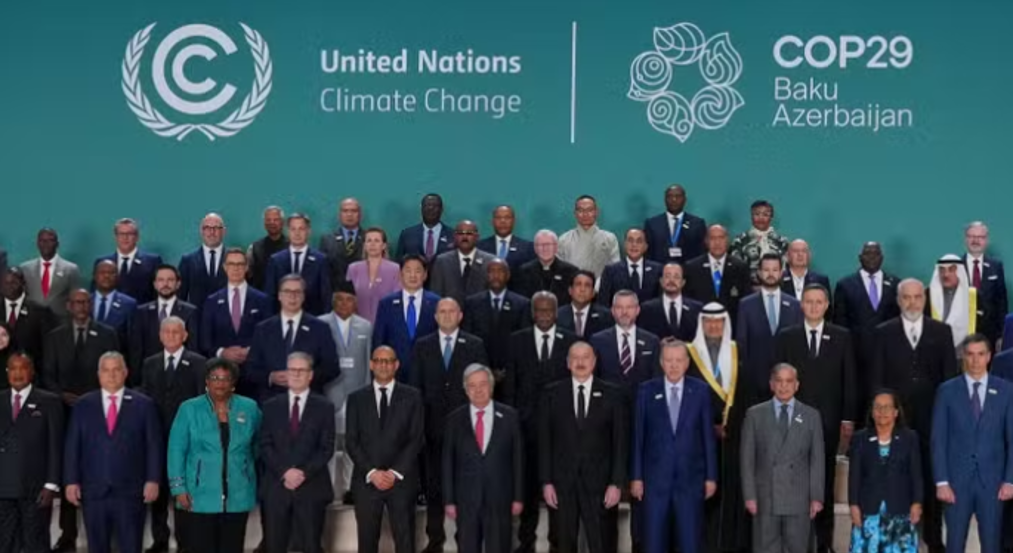
From Baku to Brazil: Will the Ceiling of Ambitions Rise for the COP summits? - Hala Mourad
Hala Murad
From Baku to Brazil: Will the Ceiling of Ambitions Rise for the COP summits? - Hala Murad
The 29th Conference of the Parties (COP29) in Baku was marked by the failure to reach genuine agreements limiting the dangers of climate change and contributing to implementing the Paris Agreement. Although everyone agreed it was meant to be a financing conference and hoped it would bring funds and financial solutions far removed from the pockets of those affected, their indebtedness, and meager resources.
In the first days of the conference, civil society organizations, activists, and pressure groups began with a high ambition of up to $5 trillion.
The number is not an exaggerated figure mentioned in the corridors of negotiations. Rather, it is the number that science came up with and that the UN considers as the minimum required for more climate finance until 2030 in its report issued by the World Urban Forum 12 (WUF 12) in Cairo in November 2024. The report spoke extensively about the needs of cities in the world for greater resilience to climate change and its consequences. However, developing, least developed, and frontline countries demand no less than $1.3 trillion annually for climate finance for mitigation, adaptation, and loss and damage. It remains a modest number compared to what the UN has determined and what pressure groups, civil society organizations, and indigenous peoples demand. It is also negligible compared to what rich countries provide to support investment in fossil fuels and wars.
On the other hand, a G20 meeting held in parallel in Brazil came up with satisfactory outcomes regarding raising ambitions on the climate issue and implementing the Paris Agreement. All these indicators created some hope for the negotiations, mainly because everyone aimed to reach a new qualitative goal that would surpass the $100 billion obstacle, which had been the limit set for previous financing up until 2020 and which is unanimously agreed to have not been achieved in terms of quality, time, or content.
But the snow melted during the second week of the conference, revealing a barren meadow of promises through the draft resolution of the new collective quantitative target in a version that did not include any significant number. The vast majority rejected the draft, and it was reformulated more than once until the proposal of the conference president arrived at $250 billion. However, the developing countries considered the number very shameful and humiliating, far from their ambition, the minimum of which reached $500 billion. After lengthy negotiations that continued until past midnight, the conference president rushed to approve the final version of the draft resolution without any consideration for the rejection of developing and island countries, some of which announced through their official delegates that this was an empty piece of paper that was of no use.
Nevertheless, they adopted the resolution and set $300 billion for funding.
Some may think that we are not looking to stop the effects of climate change and the rise in the Earth's temperature at 1.5 degrees Celsius according to the Paris Agreement until 2050 and not to exceed 2 degrees Celsius until the end of this century as much as we are looking for sources of funding. Rich countries use this as an excuse and offer solutions far from reality and funding. However, it is not because funding is the essential requirement but because it is a tool of recognition in the first place, which can be built upon to be a binding tool for the emitters to stop and stand up to their historical responsibilities to compensate the affected peoples of the world. This is the fair negotiating basis we demand and seek through attendance, participation, and pressure during the climate summits and before and after them.
Nonetheless, we only carry from the failure in Baku what motivates us to work more for the upcoming COP30 in Brazil. At the G20 Summit meeting held under its presidency, Brazil expressed a different vision, seeking to impose a progressive tax on the world's wealthy and angering many member states. However, the approach may contribute to raising the ceiling of ambitions at the upcoming COP30, which will also be held under the presidency of Brazil in Rio de Janeiro in 2025.
Recent publications

